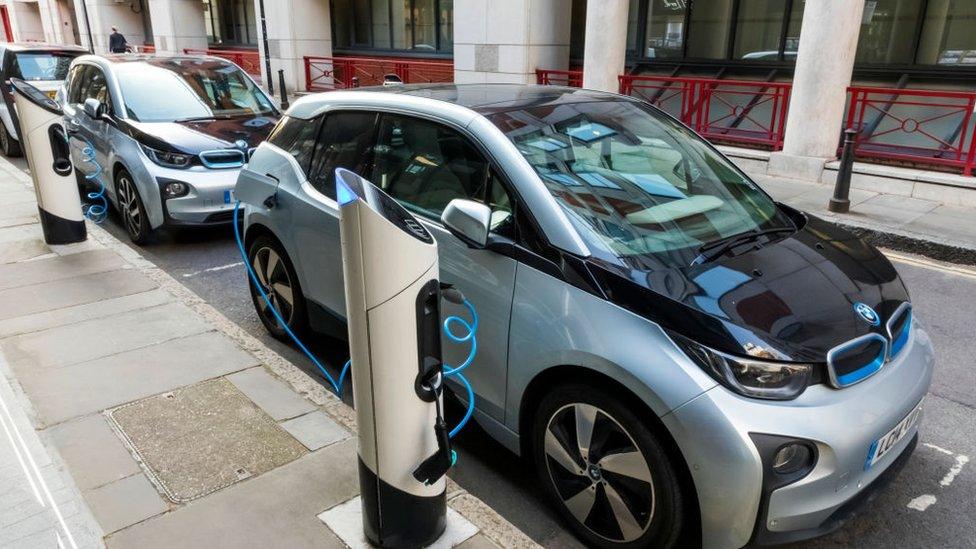UK lithium mining announced in Cornwall
- Published
- comments
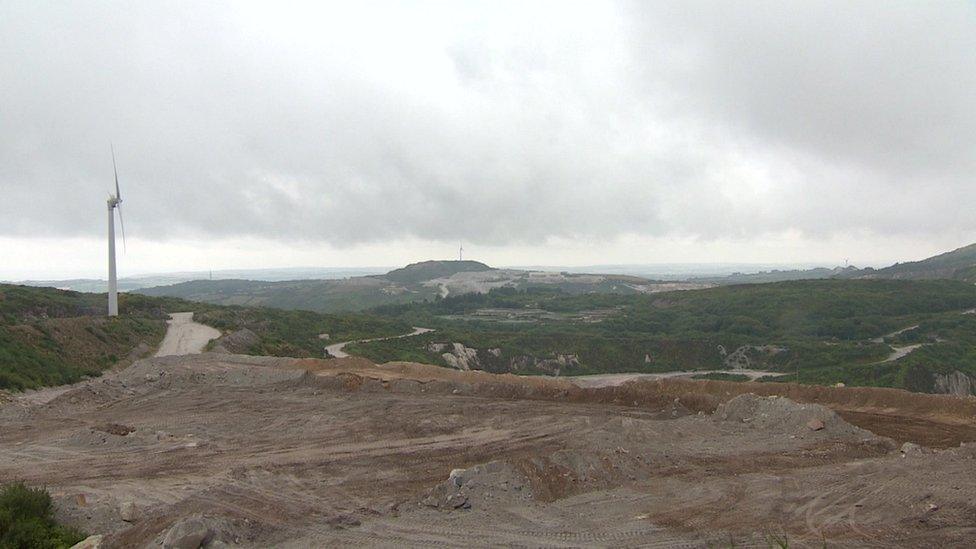
Imerys said it would build on Cornwall's centuries-old mining heritage
The mining of battery-grade lithium carbonate - a key component in electric cars - has been announced in Cornwall.
The joint venture between china clay company Imerys and British Lithium aims to operate the UK's "leading lithium hub" within five years.
Their target is to to supply 500,000 electric cars with the component per year by the end of the decade.
The development, in the St Austell area, could potentially create at least 300 direct jobs, the companies said.
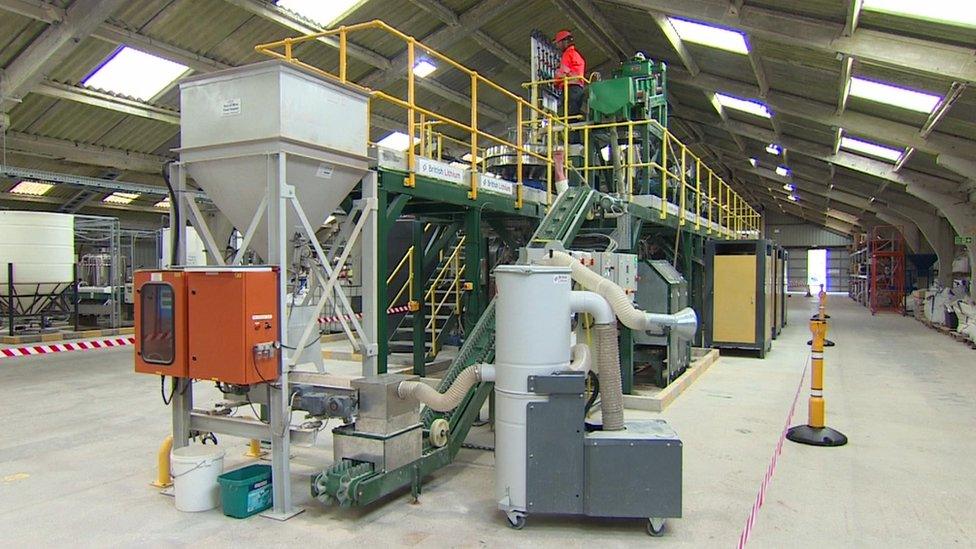
Work started on the project in Cornwall in 2017
It is estimated there are enough resources that the life of a mine could exceed 30 years and produce 20,000 tonnes of lithium carbonate equivalent per year.
This would meet roughly two-thirds of Britain's estimated battery demand by 2030.
The UK government has previously acknowledged the urgent need for electric vehicle battery manufacturing in the UK to secure the future of the car industry.
A spokesperson for the new Cornwall project said drilling and exploration had been carried out since 2017 and a process and pilot plant had been developed.
It has received financial support from Innovate UK and the Automotive Transformation Fund, a program to support the electrification of vehicles and their supply chains in the UK.

How the process works
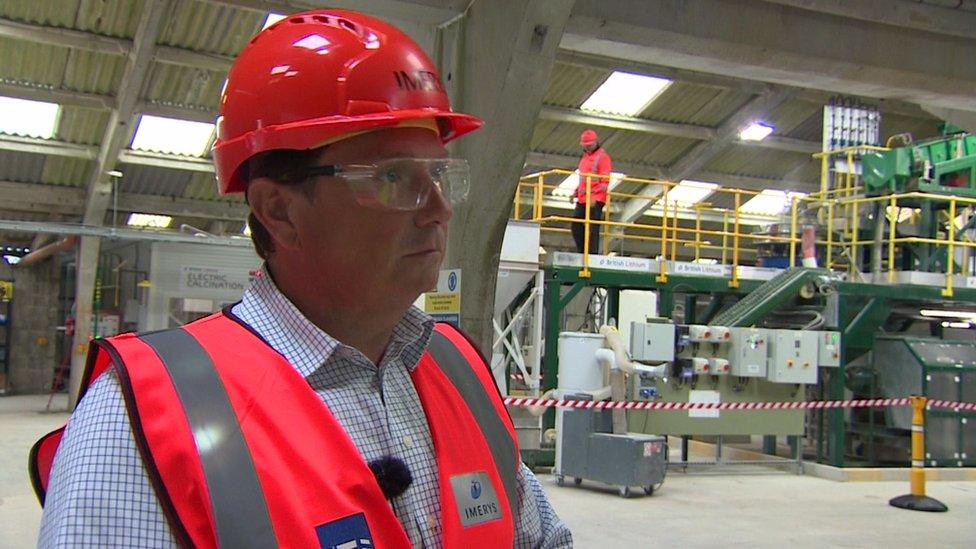
Mark Hewson, Imerys UK business lead said it was a "really exciting time for lithium in the green economy"
Mark Hewson, leader of Imerys business in the UK, explained how the lithium is produced from granite quarry rock.
He said: "We're taking the crushed material, we're putting it through a series of mechanical processes which is sieving, and that creates a concentrate.
"We're then able to take that concentrate, mix it with other materials and create a pellet form, which we then roast at a very, very high temperature.
"That creates and extracts the lithium and puts it into a water soluble form - we're then able to refine that which can then go to battery manufacturers."

Cornwall has a rich mining heritage that has supported numerous industries.
In the 1870s, it boasted 2,000 tin mines and was a world leader in tin production but within half a century the industry was almost dead due to foreign competition.
It also produced half the world's china clay in the early 20th Century, which was used to produce the finest porcelain and pottery.
Alessandro Dazza, CEO of Imerys, said the venture would build on the region's mining history while Roderick Smith, chairman of British Lithium, described it as a "key milestone" for both the companies and the lithium battery industry.
'Strong position'
Business and Trade Secretary Kemi Badenoch said: "This joint venture between Imerys and British Lithium will strengthen our domestic supply of critical minerals, which is vitally important as we seek to grow the UK's advanced manufacturing industry and help create the jobs of the future."
Louis Gardner, Cornwall Council's portfolio holder for economy, said it was "exciting developments for our residents and our economy".
She said: "This is massive for Cornwall in terms of jobs and economic growth as well as highlighting Cornwall's crucial role in supplying resources essential to energy transition and net zero.
"In Cornwall we are in a strong position, because of opportunities like the one announced today, to make the most of our natural resources such as lithium, but also floating wind power from the Celtic Sea and deep geothermal energy."
Glenn Caplin-Grey, chief executive of Cornwall and Isles of Scilly Local Enterprise Partnership, said it was a "landmark deal which is a turning point in the sustainable extraction of critical minerals in Cornwall".
"This is a huge step forward in Cornwall's ambitions to underpin a UK-based lithium battery industry and highlights Cornwall's crucial role in the domestic supply of critical minerals essential to the energy transition," he said.

Follow BBC News South West on Twitter, external, Facebook, external and Instagram, external. Send your story ideas to spotlight@bbc.co.uk
Related topics
- Published22 June 2023
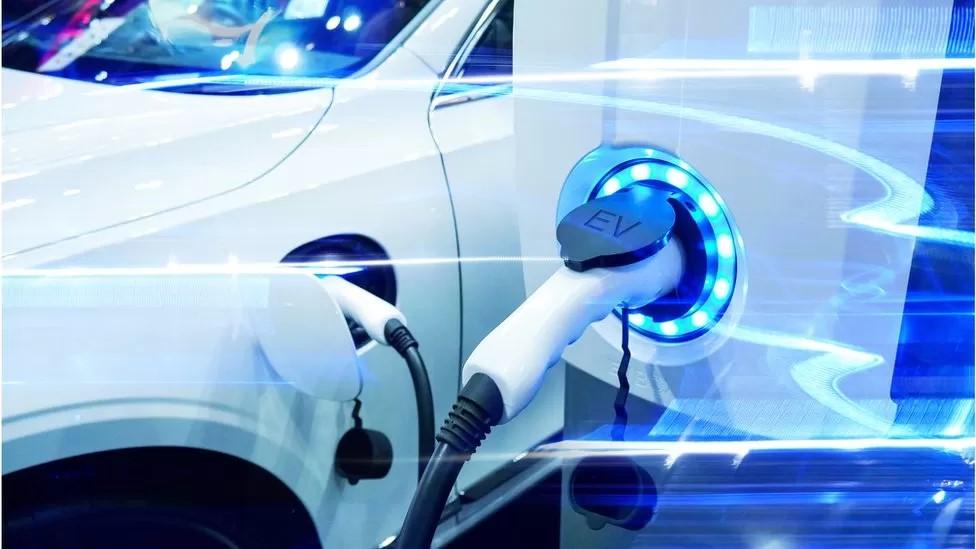
- Published12 June 2023
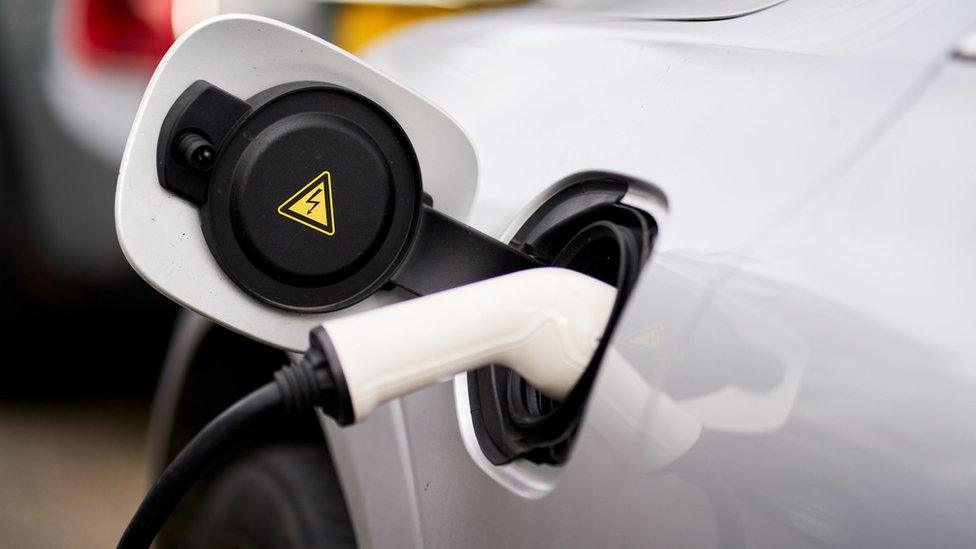
- Published16 June 2021
